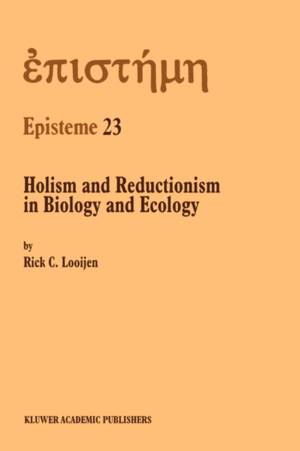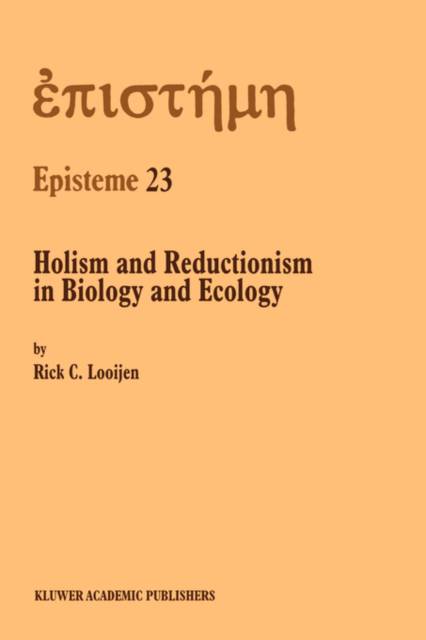
- Afhalen na 1 uur in een winkel met voorraad
- Gratis thuislevering in België vanaf € 30
- Ruim aanbod met 7 miljoen producten
- Afhalen na 1 uur in een winkel met voorraad
- Gratis thuislevering in België vanaf € 30
- Ruim aanbod met 7 miljoen producten
Zoeken
Holism and Reductionism in Biology and Ecology
The Mutual Dependence of Higher and Lower Level Research Programmes
Rick C Looijen
€ 209,95
+ 419 punten
Omschrijving
Holism and reductionism are traditionally seen as incompatible views or approaches to nature. Here Looijen argues that they should rather be seen as mutually dependent and hence co-operating research programmes. He sheds some interesting new light on the emergence thesis, its relation to the reduction thesis, and on the role and status of functional explanations in biology. He discusses several examples of reduction in both biology and ecology, showing the mutual dependence of holistic and reductionist research programmes. Ecologists are offered separate chapters, clarifying some major, yet highly and controversial ecological concepts, such as `community', `habitat', and `niche'. The book is the first in-depth study of the philosophy of ecology.
Readership: Specialists in the philosophy of science, especially the philosophy of biology, biologists and ecologists interested in the philosophy of their discipline. Also of interest to other scientists concerned with the holism-reductionism issue.
Readership: Specialists in the philosophy of science, especially the philosophy of biology, biologists and ecologists interested in the philosophy of their discipline. Also of interest to other scientists concerned with the holism-reductionism issue.
Specificaties
Betrokkenen
- Auteur(s):
- Uitgeverij:
Inhoud
- Aantal bladzijden:
- 352
- Taal:
- Engels
- Reeks:
- Reeksnummer:
- nr. 23
Eigenschappen
- Productcode (EAN):
- 9780792360766
- Verschijningsdatum:
- 30/11/1999
- Uitvoering:
- Hardcover
- Formaat:
- Genaaid
- Afmetingen:
- 156 mm x 234 mm
- Gewicht:
- 707 g

Alleen bij Standaard Boekhandel
+ 419 punten op je klantenkaart van Standaard Boekhandel
Beoordelingen
We publiceren alleen reviews die voldoen aan de voorwaarden voor reviews. Bekijk onze voorwaarden voor reviews.











